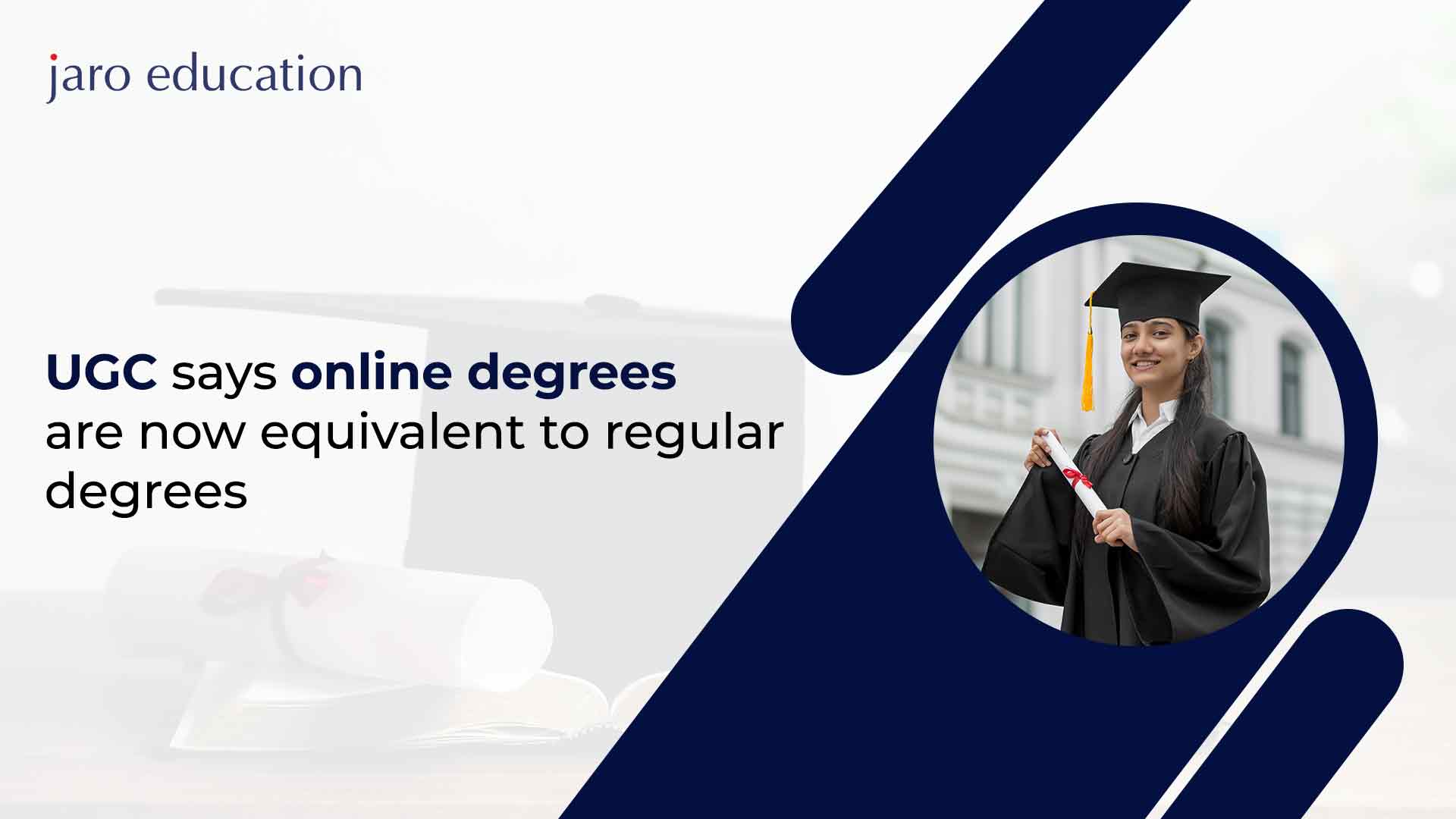Traditional learning vs Online learning
Traditional learning has always been a preferred form of learning over centuries. When it comes to the former, it is easier to keep in contact with the professors and faculty in case of any doubts and queries. For some, it is a better option to clear their doubts face-to-face. It also enhances social interaction and skills, gives students practical knowledge and exposes them to real-life situations. Moreover, it enables students to access resources and helps them grow as individuals.
However, the debate between traditional and online learning has lately been a topic among students. In India, traditional learning has always been given preference, but, due to the COVID-19 pandemic, schools and colleges have had to shift to an online mode. This was when the value of online universities/B-schools and learning increased. The Indian online education market is expanding at a CAGR of ~17.19% during 2021-2026.
Online education has been cost-effective, flexible, and convenient. Study materials are also easily available to students through specific software and applications. Due to its flexibility, students can now learn and develop their skills online, just as in a traditional classroom. Students can choose their choice of subjects and focus only on upskilling those.
Is online education as effective as traditional education?
Online learning is now considered more effective than traditional learning. Online courses provide learners with more control over their education. It allows them to focus more time on sections they do not understand while moving through areas they grasp rapidly. It also optimises students’ time studying and offers engaging, dynamic lesson ideas.
Do students prefer online learning over traditional learning?
According to various reports, students have preferred distance learning over traditional learning. This is because it has saved time, money and distance. Due to no geographical barriers, students can learn and gain knowledge at their pace. It has also resulted in an improvement in the attention span of the students.
A report stated that 32% of adult learners prefer complete online courses, while 49% prefer a “blended” option. These numbers have grown substantially during the past few years as the acceptance of online courses increased. This change has also affected the format of learning preferred by students. 22% of learners choose online classes with the video lecture format, 32% still prefer teacher-led learning, and 26% prefer self-directed learning.
Learning schedules could be personalised, and it is also proven to be flexible as some students also take up part-time work or internships after their study hours. Students have opted for online learning as they can now give more time to extracurricular activities and give focus and time to what they like doing. Alongside, they can complete their education.
Why is it good for working professionals to opt for an equivalent online degree?
When working professionals plan for further studies, an online degree can give them an edge over others. Not only can they earn a degree while working, but they can also do it at their convenience and pace. Online degrees also offer specialisations that can benefit professionals’ career growth. These degrees are economical, easy on the wallet, and chosen by self-employed professionals.
Recently, several foreign universities have started offering their courses to Indian students. This can be a great addition to the professional’s resume.
What steps is UGC taking to make online education more accessible
The University Grants Commission (UGC) recently invited online applications from all eligible Higher Educational Institutions (HEls) to grant online courses/programs, which can help students and professionals easily study online and get their required degrees or certificates. This move of the regulatory body aims to boost the gross enrolment ratio to 50% by 2035.
How are government initiatives helping promote upskilling Indians
The Indian government has made several efforts to encourage upskilling or reskilling. FutureSkills Prime, a platform under the Ministry of Electronics and Information Technology (MeitY) and NASSCOM, has launched a digital upskilling incentives program. This action will go a long way in funding the ambitions of eligible learners by enabling them to navigate careers in emerging technologies.
What are the similarities between online education and traditional education?
Whether online or traditional education, securing a degree is a great amount of work. It requires dedication, hard work and time management skills. In both cases, the syllabus for a course remains the same. The distinction between the skills and knowledge imparted by both degrees is minor.
Anyway, the differences between online and traditional degrees have become irrelevant as the validity of the degree stands the same.
At Jaro Education, you can apply for online courses from India’s top-reputed universities in various sectors.
Jaro Education ensures the growth and development of the students by providing them with an opportunity of enrolling in online courses and degrees to develop their careers. The initiatives taken by UGC have made it easier for professionals to upskill/reskill themselves with more diversified online colleges options. With online education made so accessible, India is sure to become the world’s next powerhouse.






